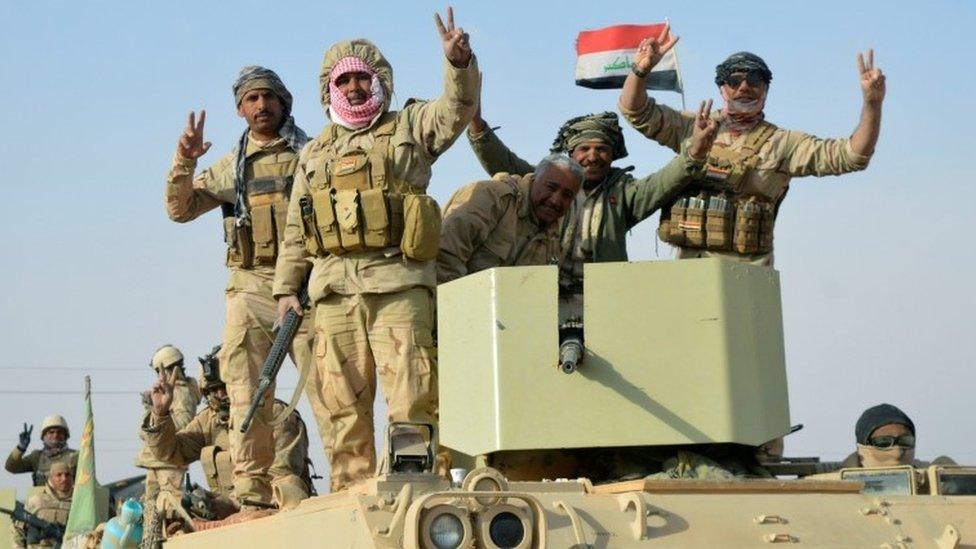Ex-British soldier Stuart Coburn 'passionate' about helping people
- Published
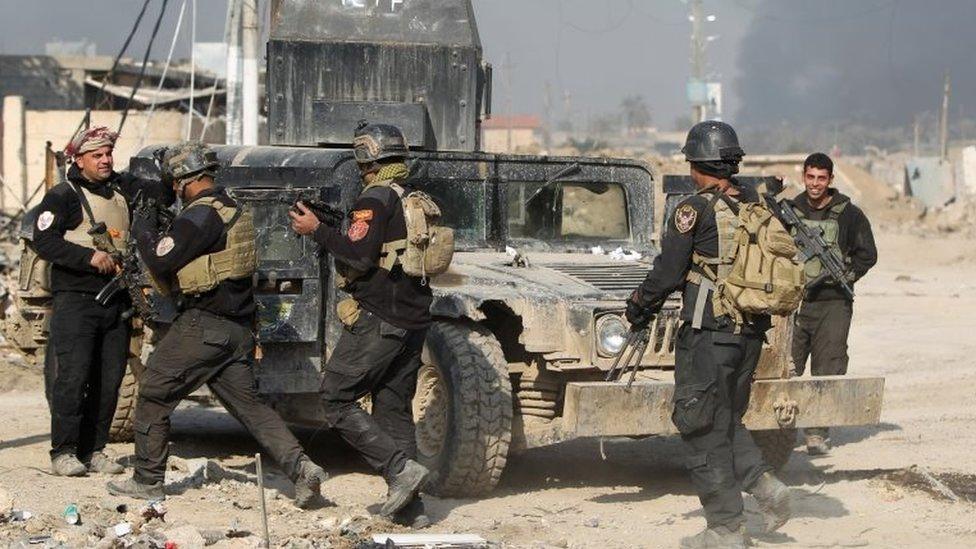
Members of Iraq's elite counter-terrorism force in Ramadi
A former British soldier killed trying to defuse a bomb in Iraq was passionate about trying to help local people, an inquest has heard.
Stuart Coburn, from Shepton Mallet, Somerset, was working as a contractor in Ramadi when he died in August 2016.
The ex-Army sergeant major was trying to neutralise the improvised explosive device (IED) when it blew up.
It had been left by the Islamic State group (ISIS), Somerset Coroner's Court was told.
The IED, which was made from five gas canisters, was accompanied by a radio control trigger - set off by a mobile phone - and a dead man's switch operated by movement.
Mr Coburn, 43, was a "true believer" in his work for a mine clearance company, the hearing was told.
In a written statement Robin Simon, who was working in Iraq teaching counter-IED techniques to the local military, said: "Stu was one of the nicest blokes that you could meet.
"He was a true believer that what he did was right and a lot of his main motivation was to help people."
'Love for the cause'
Mr Simon, who had served in the Army with the Royal Engineers, added: "Stu and I used to talk openly afterwards over a brew. His passion for helping people and his love for the cause used to be a big part of our conversations."
The court heard the device had been found in a large skip a month earlier.
The skip was cordoned off and left, but as more and more people returned to their homes in Ramadi following the withdrawal of ISIS, the decision was taken to disable the device.
Mr Simon said: "In my opinion the device has been stuck there for quite a long time, there were lots of security forces in and around the Ramadi area at that time, so it would have been unlikely that someone was sat watching from a mile away.
"If there had been someone watching, it would have been initiated long before Stu had the accident.
"The device initially was not a threat, because there was no-one in the city. But as things progressed with more people coming back it became a threat."
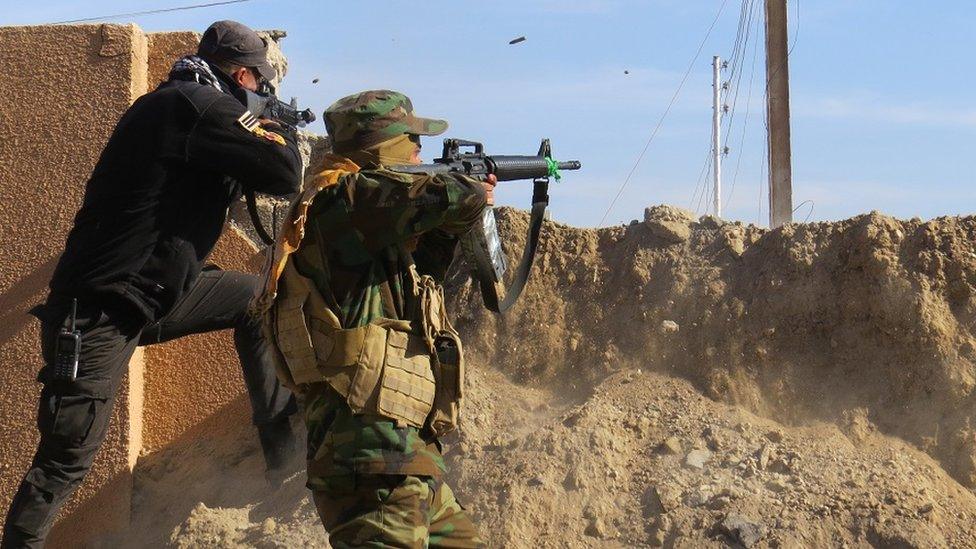
Iraqi forces fought with ISIS fighters in Ramadi in 2016
Recalling the day of Mr Coburn's death, Mr Simon said: "I got a phone call saying there's been an accident.
"My reaction was, 'Oh my god is everyone all right?' To which I got, 'He's gone'. I was like, 'What do you mean he's gone?' I was standing in disbelief."
Todd Glessner, who had been with Mr Coburn when the device was discovered close to a residential area, outlined details of the discovery.
Also in a written statement, he they used a hook and line kit to remove metal sheeting from the skip to see what it was made from.
Mr Glessner said there was a piece of cloth on top of one of the gas cylinders, which could have been concealing a pressure switch.
"At this point we came across the fact that it was a radio-controlled device," he said.
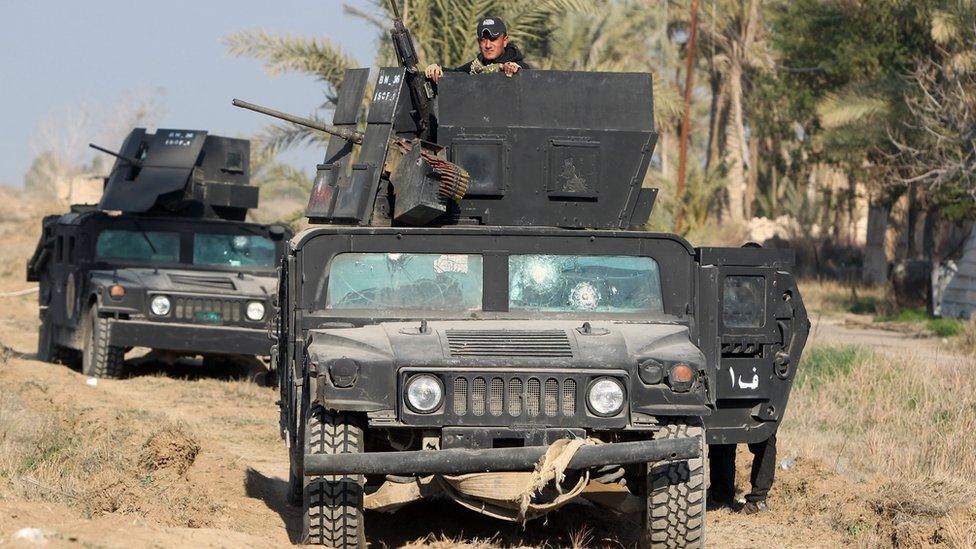
Iraq's elite Counter-Terrorism Service led the effort to drive ISIS from Ramadi
Mr Glessner said the device was left where it was with the area cordoned off and the find reported back to their superiors.
"I certainly didn't know about Stu going back there on August 22, but we never had any conversation about him returning," he said.
"I was on the ground about a mile away from where Stu was when he was killed. I heard the detonation go off and I started to see smoke.
"I then heard on the radio some sporadic chatter and we knew something had happened and we got a call to say get out.
"We drove to the hospital in convoy with the other teams and it was later confirmed that it was Stu who had been killed."
The inquest continues.

Follow BBC West on Facebook, external, Twitter, external and Instagram, external. Send your story ideas to: bristol@bbc.co.uk , external
Related topics
- Published21 March 2023
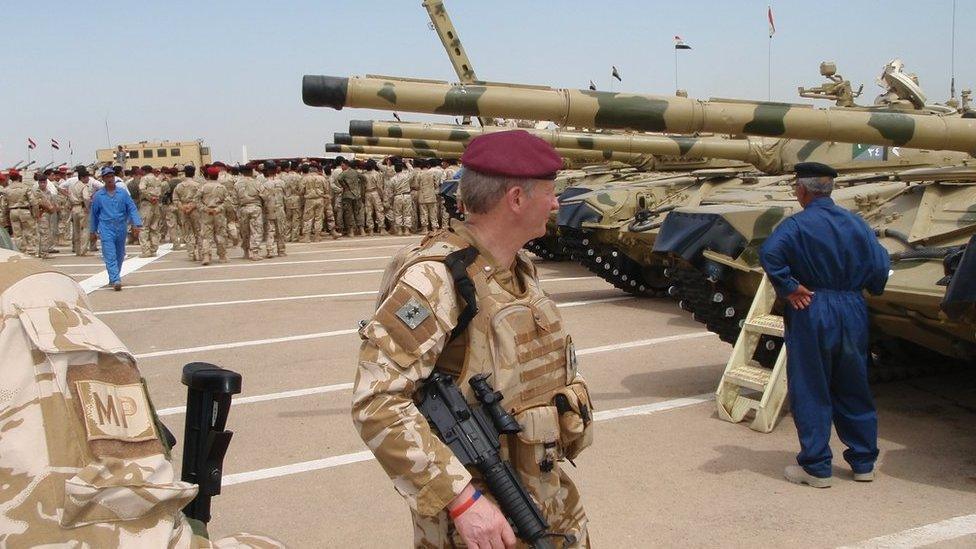
- Published23 December 2019
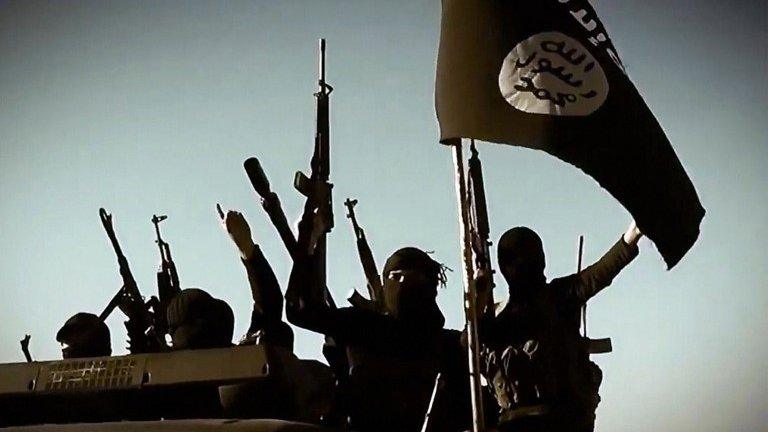
- Published9 December 2017
